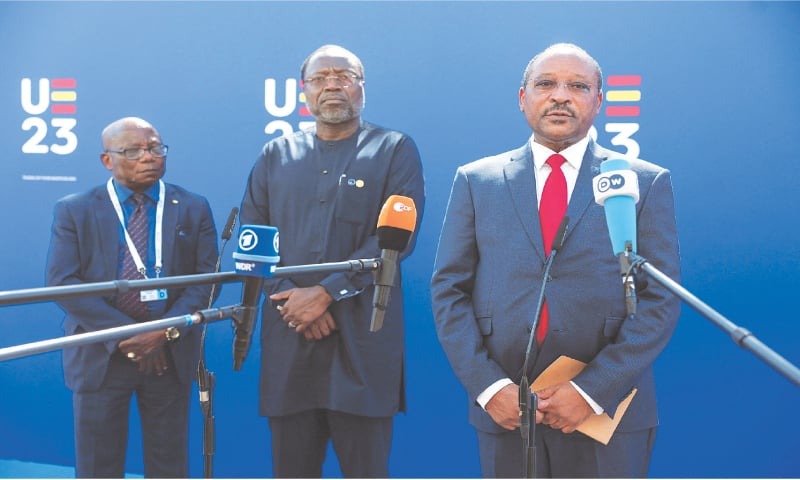In an unprecedented move that threatens to plunge diplomatic relations into further turmoil, Niger’s new military rulers have stripped France’s ambassador of his diplomatic immunity and ordered his expulsion from the country. The decision comes in the wake of a coup in the Sahel state on July 26, which toppled a close French ally, President Mohamed Bazoum. The subsequent rift between Niger and France has deepened as Paris continues to refuse recognition of Niger’s new leadership. This escalating crisis has prompted international concern, with Italy’s foreign minister warning against a military solution that could trigger a migration crisis. The showdown between Niger and France intensifies as both sides stand firm on their positions.
Diplomatic Crisis Unfolds
Niger’s move to revoke the diplomatic immunity of France’s ambassador, Sylvain Itte, was disclosed in a letter dated Tuesday, addressed to the foreign ministry in Paris. The letter stated that Ambassador Itte “no longer enjoys the privileges and immunities attached to his status as a member of the diplomatic personnel in the French embassy.” Furthermore, it was noted that the diplomatic cards and visas of Itte and his family had been canceled, with the police instructed to proceed with his expulsion. Last week, Niger had already issued a 48-hour ultimatum for Ambassador Itte to leave the country, a demand that France categorically refused, citing its legality.
International Concerns Over a Military Solution
As tensions mount between Niger and France, Italy’s Foreign Minister, Antonio Tajani, voiced grave concerns over the possibility of a military solution to the ongoing crisis. He termed it a “disaster” that could potentially lead to a new migration crisis. Tajani emphasized the need for a diplomatic resolution, echoing the sentiments of the Economic Community of West African States (ECOWAS), which has been attempting to negotiate with the coup leaders. ECOWAS has also warned that it stands ready to deploy troops to Niger if diplomatic efforts fail to restore constitutional order.
Tajani’s concerns extend beyond the immediate diplomatic impasse, as he drew parallels with Sudan, where conflict had driven people to leave the country in search of safety and stability. He spoke positively of an Algerian proposal that envisions a six-month transition period led by civilians as a viable solution to the crisis.
Showdown Looms as France Maintains Its Position
As the diplomatic crisis escalates, France is showing no sign of backing down. French military spokesman Colonel Pierre Gaudilliere issued a stern warning, stating that “the French military forces are ready to respond to any upturn in tension that could harm French diplomatic and military premises in Niger.” Measures have been taken to safeguard these facilities, particularly the airbase near the capital, which hosts approximately 1,500 French troops dedicated to countering a bloody jihadist insurgency.
Adding to the tension, Niger’s new rulers denounced military agreements with France on August 3, a move that Paris has chosen to disregard, citing concerns about the legitimacy of the current regime. Meanwhile, an organization formed after the coup, the Patriotic Front for Niger Sovereignty (FPS), is demanding a tough stance against France, labeling Ambassador Itte as a “French citizen in an irregular situation” on Niger’s soil. The FPS has called for a “massive” march on the French base, followed by a sit-in until French troops depart.
















